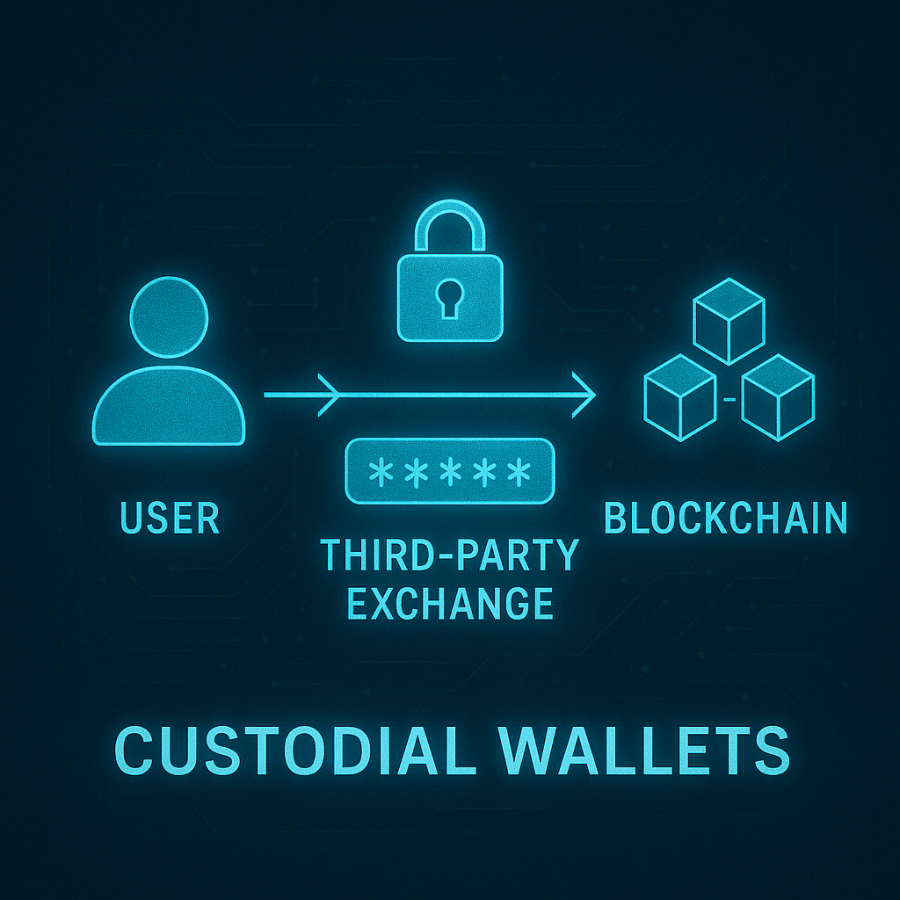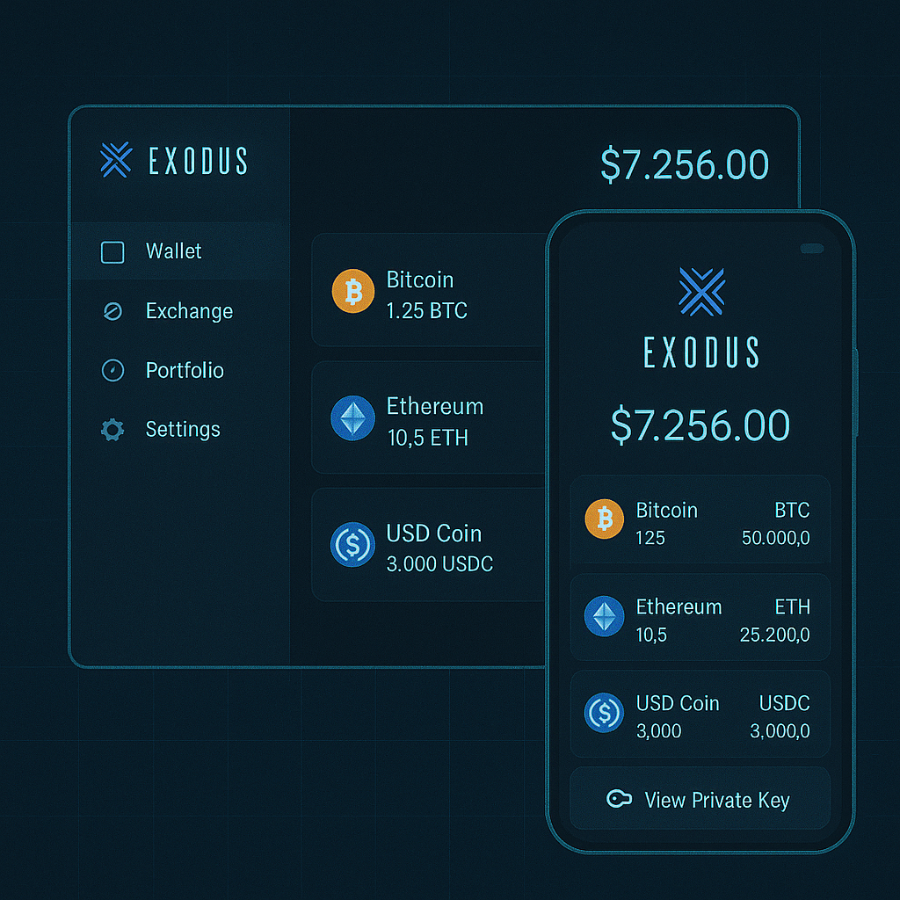Now Reading: Non-Custodial vs Custodial Wallets: Which One is Right for You?
-
01
Non-Custodial vs Custodial Wallets: Which One is Right for You?
Non-Custodial vs Custodial Wallets: Which One is Right for You?

Introduction
In the evolving world of cryptocurrency, security, control, and usability are paramount. One of the biggest decisions for any crypto investor or user is choosing between non-custodial vs custodial wallets. This article will break down the key differences, provide pros and cons, and help you make an informed decision.
What is a Cryptocurrency Wallet?
A cryptocurrency wallet is a digital tool that allows you to store, send, and receive digital assets such as Bitcoin, Ethereum, and altcoins. It holds your private keys and public addresses, making crypto transactions possible. Wallets are categorized primarily into custodial and non-custodial types.
If you’re unsure how to set up your own wallet, check out our step‑by‑step guide: How to Create a Crypto Wallet in 2025.
What is a Custodial Wallet?

A custodial wallet is managed by a third-party service provider such as an exchange (e.g., Coinbase). In this case, the private keys the essential credentials that grant access to your crypto are held by the platform, not by you.
Key Features of Custodial Wallets:
- Wallet access via username/password
- Private keys controlled by service provider
- Recovery and support options available
Advantages and Disadvantages of Custodial Wallets
✅ Advantages:
- User-Friendly: No need to manage private keys.
- Customer Support: Get help if you’re locked out.
- Password Recovery: Easy recovery options.
❌ Disadvantages:
- Less Security: You don’t own your private keys.
- Centralized Risk: Susceptible to hacks or government shutdowns.
- Limited Privacy: User data may be tracked or shared.
What is a Non-Custodial Wallet?
A non-custodial wallet gives you full control over your private keys and crypto assets. No third party has access. These wallets are favored by experienced crypto users who prioritize privacy and decentralization.
Key Features of Non-Custodial Wallets:
- Users generate and store private keys
- Access requires a recovery phrase (usually 12–24 words)
- You are the sole custodian of your funds
Pros and Cons of Non-Custodial Wallets

✅ Pros:
- Full Ownership: Only you have access to your funds.
- Privacy: Transactions are not controlled or viewed by third parties.
- Decentralization: Fits the core philosophy of crypto.
❌ Cons:
- Complex for Beginners: Recovery phrase must be stored securely.
- No Recovery Option: Lose your phrase = lose your funds.
on-Custodial vs Custodial Wallets: A Detailed Comparison

| Feature | Custodial Wallet | Non-Custodial Wallet |
|---|---|---|
| Private Key Ownership | Held by third-party | Held by user |
| Security Responsibility | Provider | User |
| Recovery Options | Available | Not available |
| Accessibility | Very easy | Moderate |
| Examples | Coinbase, Binance | Exodus, MetaMask, Trust |
| Suitable For | Beginners, traders | Experienced users, holders |
Which Wallet Type Should You Choose?
If you’re just getting started with crypto or primarily trading, custodial wallets are a simpler option. However, if you care about true financial sovereignty, a non-custodial wallet gives you full control.
Top Custodial Wallets in 2025
1. Coinbase Wallet
- Easy to use
- Supports many coins
- Regulated platform
2. Binance Wallet
- Integrated with trading platform
- Multi-chain support
3. Crypto.com App
- Cashback rewards and integrated debit card
Best Non-Custodial Wallets in 2025
1. Exodus Wallet
- User-friendly interface
- Desktop & mobile support
- 100+ asset support
2. MetaMask
- Browser extension and app
- Supports Ethereum and compatible chains
3. Trust Wallet
- Backed by Binance but remains non-custodial
- Wide coin support
Exodus Wallet: A Deep Dive

Exodus Wallet is one of the most popular non custodial wallets in the crypto space. It offers:
- A beautifully designed interface
- Full private key ownership
- Built-in exchange and staking
Key Factors to Consider When Choosing a Wallet
- Security: Do you trust yourself or a provider?
- Convenience: Do you want recovery options?
- Usage: Are you a trader or a HODLer?
- Compatibility: Does it support your favorite tokens?
Final Thoughts: Security vs Convenience

Choosing between non-custodial vs custodial wallets depends on your goals:
- Go custodial if you value convenience, ease, and recovery help.
- Go non-custodial if you want full ownership and privacy.
For most users, a hybrid approach — using both — may be the best strategy.



























